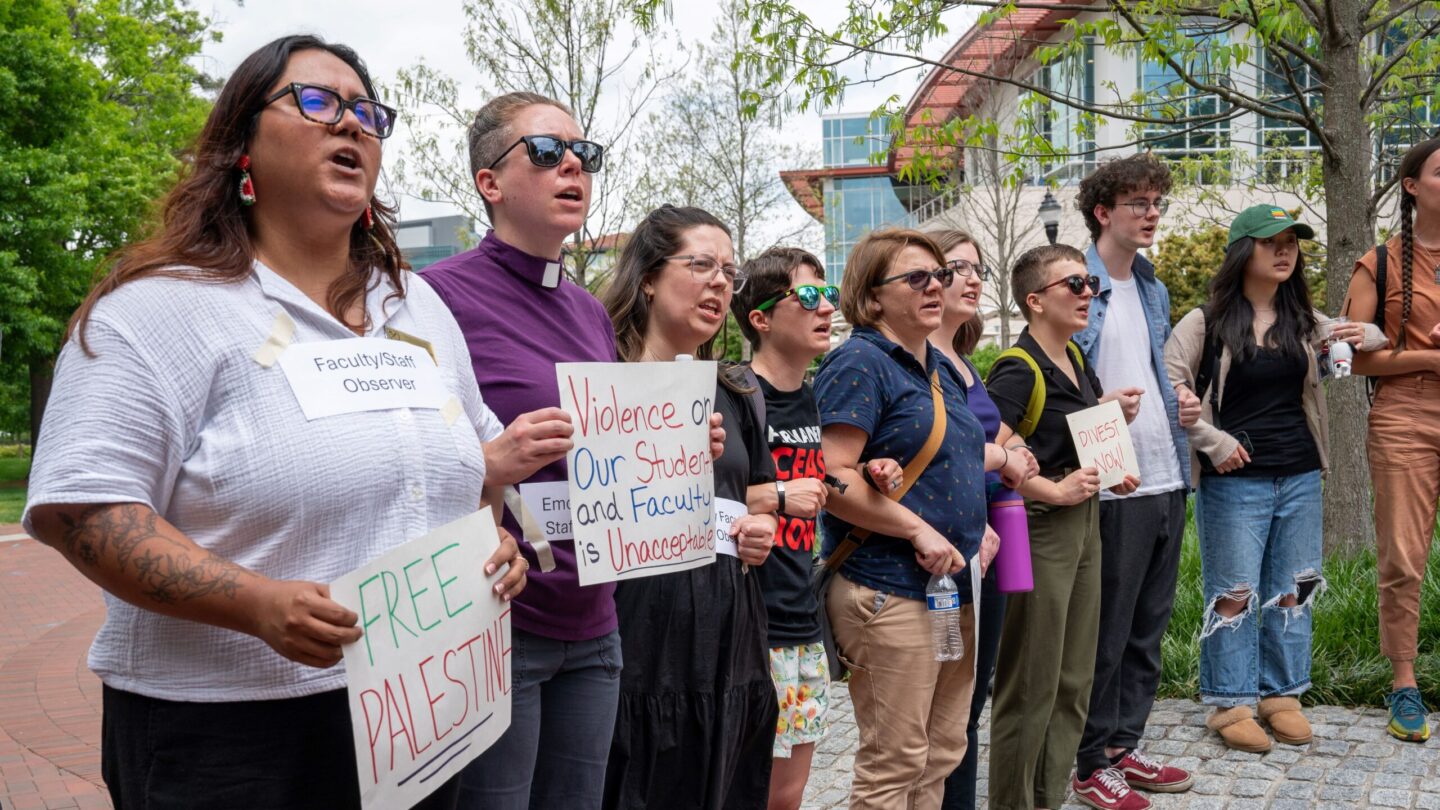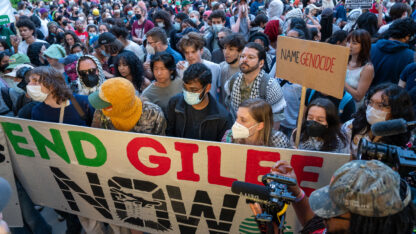Protests returned to Emory University’s campus on Monday afternoon, just hours after over a dozen pro-Palestinian demonstrators were arrested on the University of Georgia campus in Athens.
Emory students, faculty members and others gathered on campus to speak out against the Israel-Hamas war and the controversial public safety training center in Atlanta that opponents have dubbed “Cop City.”
Faculty members from Emory’s Candler School of Theology criticized the administration’s and law enforcement’s response to an April 25 protest on campus that led to multiple arrests. Protesters had set up an encampment on Emory’s quad.
“We unequivocally denounce the brutal police response,” said Alison Collis Greene, an associate professor of American religious history. “The overreaction and the escalation of the police presence on campus was egregious and emblematic of what students gathered to protest — the use of state violence to displace and dispossess.”
Greene said that the administration’s decision to have law enforcement clear out the encampment put Emory’s students, faculty and staff “in an exceedingly and unnecessarily dangerous position.”
Emory professor Alison Collis Greene on the April 25 protests and arrests
Emory University President Gregory Fenves was forced to backtrack on a statement he made last week saying that the protesters at the encampment “are not members of our community.” He issued an apology on Monday morning.
“It is clear to us now that this information was not fully accurate, and I apologize for that mischaracterization,” he said.
Fenves said the videos of the arrests are “deeply distressing” and that the administration is conducting a review to “develop recommendations to improve how we keep our community safe.” The review will include how Emory engages with external law enforcement agencies, according to Fenves. The Georgia State Patrol and Atlanta Police Department assisted the Emory Police Department in clearing the April 25 encampment.
Pro-Palestine group arrested on UGA campus
Early Monday morning in Athens, police arrested 16 University of Georgia students and others on the school’s North Campus. The pro-Palestine group made an encampment there and had refused to leave.
The encampment “crossed a line and violated our policies,” university spokesperson Gregory Trevor said in a statement.
About 25 protesters erected tents and a barricade, blocking sidewalks and building entrances and using amplified sound, according to Trevor.
“Protesters were advised repeatedly, for more than an hour, that the tents and barricades they had put in place had to be removed and that they must comply with applicable policies,” Trevor said. “They were also given the opportunity by Student Affairs personnel to make a reservation and relocate to one of our centrally designated forums, but they refused.”
UGA police started arresting the protesters and clearing the encampment at 8:30 a.m.
The protests on Emory’s and UGA’s campuses mirror a growing number of pro-Palestinian demonstrations at universities across the U.S.
Matthew Pearson contributed to this report.









